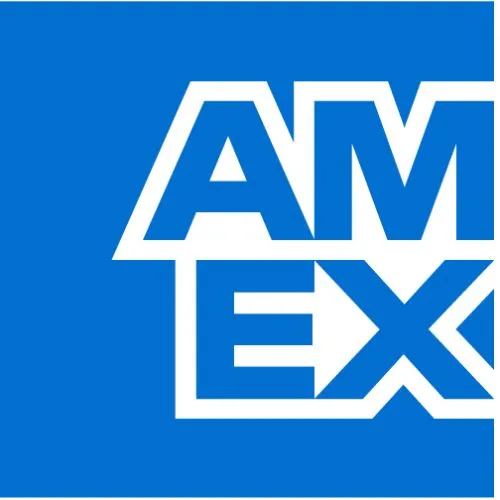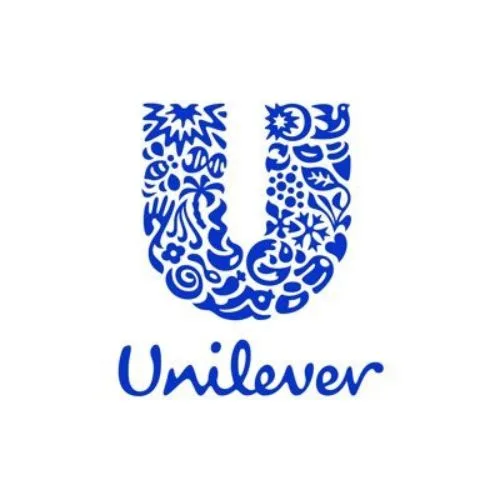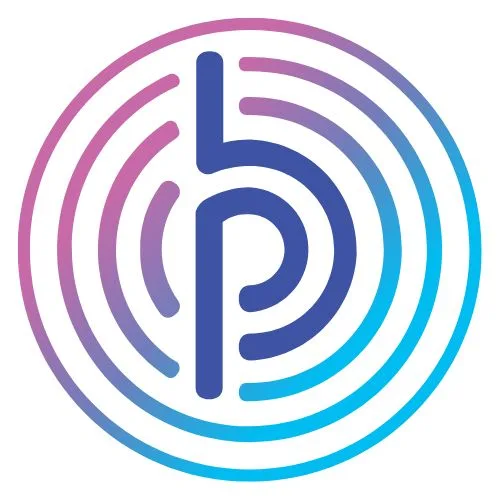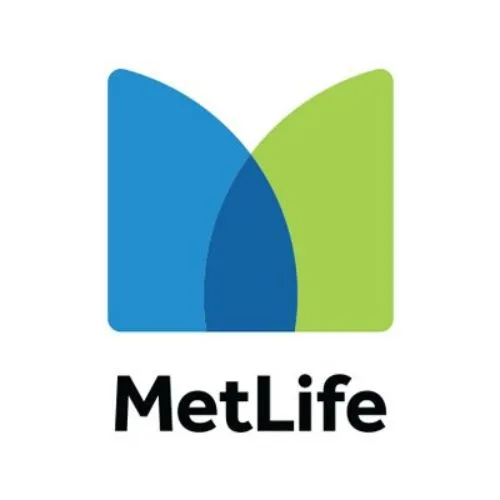- DISC Based Workshops
Emotional Intelligence using DISC
Harness Emotional Wisdom: DISC-Enhanced Emotional Intelligence with Synergogy.

People Trained
DISC Reports - Customer Service Version
Industry Sectors Covered
Companies using the highly acclaimed TTI Success Insights DISC Reports
Elevate Your Emotional Intelligence using DISC
This workshop focuses on exploring Emotional Intelligence (EI) through the perspective of DISC profiling. Emotional Intelligence is essential for understanding and managing our own emotions and for recognizing and influencing others’ emotions, making it a vital skill in today’s workplace. By utilizing DISC profiling, a behavioral assessment tool, the workshop provides a distinctive method to enhance your Emotional Quotient, offering practical insights and strategies tailored to help participants effectively engage with and navigate emotional dynamics in professional settings.

Course Content
Emotional Intelligence using DISC is an immersive program designed to elevate emotional intelligence skills by integrating the DISC framework. This engaging workshop offers participants essential insights and techniques to understand and improve their emotional quotient (EQ) – a critical factor in personal and professional success. By applying the principles of DISC profiling, attendees will explore various emotional and behavioral patterns, learning how to adapt their emotional responses and interactions for more effective and empathetic communication.
Introduction to DISC
Brief introduction of DISC, its construct, history and applications.
DNA of DISC Assessment
Dominance, Influence, Steadiness & Compliance - Core DNA of DISC Profiles.
Self-Discovery using DISC
Discovering personal strengths and weaknesses using your own DISC profile.
Introduction to EQ
Overview of emotional intelligence and its significance in personal and professional life.
Self-Awareness Enhancement
Techniques for recognizing and understanding one's own emotions using DISC.
Emotional Regulation
Learning to manage and control emotions effectively for better decision-making.
Understanding Others' Emotions
Developing empathy by recognizing and responding to others' emotional states.
Effective Communication
Techniques for clear, empathetic communication tailored to different DISC styles.
Give Feedback using DISC
Strategies for resolving disagreements by understanding emotional dynamics.
Improving Leadership with EI
Adjusting communication and behavior based on DISC profiles for better interaction.
EQ Application Practice
Practical exercises and role-play scenarios for applying EQ skills in real-world situations.
Post Training Action Planning
Creating a personal plan to improve Emotional intelligence using DISC in various scenarios.
Who should attend?
- Managers & Supervisors
- Human Resources Professionals
- Project Managers
- Sales & Marketing Professionals
- Technical Professionals and Engineers
- Educators and School Administrators
Key benefits
- Enhanced Self-Awareness
- Improved Active Listening
- Effective Conflict Resolution
- Adaptable Communication Styles
- Stronger Relationship Building
- Clearer Message Delivery
Course methodology
- Instructor-led Facilitation
- Cohort Learning - Synergogy
- Case Work & Scenarios
- Interactive Real Play
- Personal Reflection and Action Planning
Course materials
- Personal DISC Profile Report
- Participant Workbook
- Case Study Booklets & Handouts
- Ready Reckoner Laminates
- Personal Action Plan Template
Schedule a 30 minute call to discuss your needs.
Choose from a Range of customizations
Choose from a range of solutions to suit your every need. Our course can be customised to your industry or business unit context. What’s more, we are happy to deliver this course face to face or in virtual, instructor-led formats.
Other Courses Using DISC
Communication
Improve your communication skills through the DISC framework, fostering clearer understanding and more effective interactions with others.
Team Building
Boost team synergy and collaboration by applying the DISC framework, enhancing understanding and communication within your team.
Sales Training
Elevate your sales effectiveness by integrating the DISC framework, honing your ability to understand diverse customer profiles and communicate persuasively.
Customer Service
Enhance your customer service skills by applying the DISC framework, enabling better understanding of customer behaviors & improving interaction quality.
Personal Development
Advance your personal development by utilizing the DISC framework to deepen self-understanding and enhance your interpersonal relationships.
Leadership Coaching
Foster personal growth by leveraging the DISC framework, enhancing self-awareness and interpersonal skills for holistic personal development.
Conflict Management
Improve your conflict management skills through the DISC framework, Transform Conflict into Collaboration using proven methods.
First Time Managers
For new managers, enhance leadership & team management skills using the DISC framework, fostering effective team management and productivity.
Start your journey with Synergogy

Frequently asked questions
Everything you need to know about Emotional Intelligence Using DISC.
Emotional Intelligence, commonly referred to as EQ (Emotional Quotient), is the capacity to recognize, comprehend, and manage our own emotions while also empathizing with others. It enables individuals to handle stress gracefully, communicate effectively, navigate challenges, and resolve conflicts. EQ encompasses:
- Self-awareness: The ability to understand one’s own emotions and their impact on thoughts and behavior.
- Self-management: The skill to control impulsive feelings and behaviors, manage emotions in healthy ways, and adapt to changing circumstances.
- Social awareness: The knack for understanding others’ emotions, needs, and concerns.
- Relationship management: The ability to develop and maintain good relationships, communicate clearly, inspire and influence others, work well in a team, and manage conflict.
Emotional intelligence (EQ) is indispensable in the workplace due to its multifaceted impact on organizational dynamics. It empowers leaders to connect with and motivate their team members, creating an environment of inspiration and productivity. High EQ among team members facilitates smoother collaboration and innovative thinking, as individuals with strong EQ are better equipped to adapt to changing situations and contribute creative solutions. EQ is also instrumental in conflict resolution, ensuring issues are addressed constructively, thus maintaining a harmonious work environment.
Moreover, workplaces that value EQ tend to report higher morale and job satisfaction, contributing to the realization of everyone’s professional potential and fostering a culture of continuous personal growth and development. EQ enhances interpersonal relations through the ability to read and interpret nonverbal cues, enriching communication.
Individuals with high EQ are often more successful in career advancement, as their interpersonal skills and decision-making capabilities are sharpened. This, in turn, translates to improved efficiency, reduced stress levels, and a better customer experience. From a cultural perspective, high EQ within an organization leads to healthier work environments, increased employee retention, and stronger customer relations.
In decision-making processes, incorporating emotional information leads to more balanced and effective outcomes. EQ drives employee engagement, cultivating a committed workforce, while also strengthening communication and negotiation skills. During crises, EQ is crucial for maintaining composure and providing the necessary perspective to navigate through challenges. Ultimately, EQ is the cornerstone of a thriving workplace culture, characterized by mutual respect and understanding.
EQ training is structured around the model proposed by Daniel Goleman, which includes the following key components:
- Self-Awareness: Training focuses on enhancing an individual’s understanding of their own emotions, strengths, weaknesses, and drives.
- Self-Regulation: Participants learn to control or redirect disruptive impulses and moods, and the propensity to suspend judgment and think before acting.
- Motivation: EQ training helps individuals to:
- Goal Setting: Develop the ability to set and work toward personal and professional goals that are meaningful and attainable.
- Intrinsic Motivation: Cultivate an internal drive that can sustain their motivation through challenges.
- Empathy: This aspect of EQ training involves:
- Understanding Others: Building skills to recognize and appreciate the feelings and perspectives of others.
- Active Listening: Improving the ability to listen effectively and understand the deeper messages in conversations.
- Social Skills: Training is provided to enhance social competencies like communication, conflict management, leadership, change catalyst, influence, collaboration, and teamwork.
These components are interdependent, each reinforcing the others for holistic personal growth. EQ training aims to develop these competencies to improve individuals’ ability to navigate the social complexities of the workplace, lead and collaborate effectively, and achieve personal and professional success.
Yes it can. here are some possible ways EQ can help individuals.
- Enhanced Self-Awareness: Increases understanding of personal emotions, strengths, and weaknesses.
- Improved Self-Regulation: Develops the ability to manage emotions and impulses effectively.
- Increased Empathy: Cultivates the capacity to relate to and understand others’ emotions.
- Motivation and Goal Achievement: Encourages setting and realizing personal and professional goals.
- Effective Communication: Strengthens the ability to convey messages and understand others clearly.
- Conflict Resolution Skills: Teaches strategies to resolve disagreements constructively.
- Adaptability and Resilience: Builds skills to cope with change and rebound from setbacks.
- Leadership Effectiveness: Enhances the ability to lead and influence positively.
- Positive Workplace Culture: Contributes to creating a supportive and cooperative work environment.
- Increased Job Satisfaction: Leads to greater contentment and fulfillment at work.
- Improved Communication Skills: Fosters clearer and more persuasive communication.
- Balanced Reactions: Helps maintain composure when receiving constructive criticism.
- Enhanced Social Skills: Expands the ability to interact socially with ease and effectiveness.
- Increased Tolerance: Encourages understanding and acceptance of diverse perspectives.
- Increased Accountability: Heightens personal responsibility and integrity.
Yes it can. Here are some possible ways it can benefit organisations.
- Improved Team Dynamics: Facilitates better collaboration and understanding among team members.
- Higher Employee Engagement: Promotes a more committed and motivated workforce.
- Reduced Turnover: Decreases the rate at which employees leave the organization.
- Enhanced Leadership Development: Cultivates leaders who can manage effectively and inspire their teams.
- Increased Productivity: Leads to more efficient and effective work output.
- Innovative and Creative Thinking: Encourages a culture of innovation and out-of-the-box thinking.
- Customer Satisfaction: Improves service quality and customer relations.
- Effective Change Management: Equips the organization to navigate and manage change proficiently.
- Positive Reputation: Builds a public image of the organization as a great place to work.
- Overall Organizational Resilience: Strengthens the organization’s ability to withstand and adapt to challenges.
Yes, EQ training can and should be customized to suit the challenges and dynamics of different industries or sectors:
- Assessment of EI Levels: Begin by evaluating the emotional intelligence levels and specific needs within each department using surveys, interviews, or focus groups.
- Align Training with Departmental Goals: Ensure that the training objectives are aligned with departmental goals, incorporating relevant examples and case studies that resonate with the specific industry.
- Diverse Training Methods: Employ various methods such as lectures, discussions, role-playing, and simulations to cater to different learning styles and objectives.
- Ongoing Support and Coaching: Provide continuous support and coaching post-training to reinforce learning and support the application of skills.
- Industry-Specific Challenges: Develop modules that address unique leadership and team challenges within the industry. For example, in healthcare, training may emphasize empathy for patient care, whereas in technology, the focus might be on adaptability to change.
- Communication Scenarios: Customize communication training to fit the industry, whether it’s enhancing customer service interaction or improving technical communication in R&D.
- Customer Interaction Modules: Tailor modules for roles with direct customer interaction to improve service quality and relationship management.
- Crisis Management Scenarios: Create crisis management training with scenarios that mirror potential emergencies within the specific sector.
- Compliance and Ethics: For regulated industries, focus training on compliance, ethical decision-making, and navigating regulatory environments with emotional intelligence.
- Patient-Centric Care in Healthcare: Emphasize EQ skills that support patient-centered approaches and effective communication with patients and families.
- Adapting to Technological Changes: In tech-driven sectors, highlight EQ skills such as adaptability, creativity, and teamwork in fast-paced environments.
Customized EQ training ensures that the development of emotional intelligence is directly relevant and immediately applicable, enhancing both individual performance and organizational effectiveness in any industry.
Organizations can measure the effectiveness of EQ training through a multifaceted approach. Pre- and post-training EQ assessments are fundamental in identifying any enhancements in emotional competencies. The use of 360-degree feedback provides a comprehensive perspective on behavioral changes by incorporating insights from colleagues at all levels. Direct observations of behavioral changes in the workplace, particularly in areas of communication, leadership, and problem-solving, offer tangible evidence of the training’s impact.
Additionally, analyzing participant responses in case studies and role-playing exercises can reveal the practical application of EQ skills. Training evaluation surveys are valuable for gauging participants’ views on the relevance and personal impact of the EQ training they received. Post-training interviews can further elucidate the subjective changes participants perceive in their work approach and interpersonal interactions.
A review of job performance metrics and productivity data post-training can provide objective measures of improvement. An analysis of retention and turnover rates may also indicate the training’s effectiveness, as higher EQ is often correlated with increased job satisfaction and employee retention. Lastly, assessing the quality of team dynamics and collaboration pre- and post-training can provide insight into the broader organizational impact of enhanced EQ.
DISC assessments enhance emotional intelligence by promoting self-awareness, aiding in understanding diverse personality styles, and refining communication and leadership strategies. Specifically, they enable individuals to:
- Self-Awareness: Recognize personal behavioral patterns and communication styles, key to developing EI.
- Understanding Others: Appreciate the diversity in behavioral styles, which encourages empathy and better team dynamics.
- Communication Skills: Adjust communication methods according to different DISC styles to interact more effectively.
- Conflict Resolution: Anticipate and manage potential conflicts by considering various communication preferences and styles.
- Team Dynamics: Leverage the strengths of diverse DISC profiles within a team to enhance collaboration.
- Leadership Effectiveness: Customize leadership approaches to align with the individual DISC profiles of team members.
- Stress Management: Identify and manage stress triggers related to behavioral styles.
- Feedback and Recognition: Provide feedback that resonates with the receiver’s DISC style, fostering a constructive environment.
- Continuous Development: Develop targeted plans for EI improvement based on one’s DISC assessment insights.
- Enhanced Decision-Making: Make more inclusive decisions by considering a variety of perspectives informed by DISC insights.
The DISC model’s four personality traits—Dominance, Influence, Steadiness, and Compliance—interact with emotional intelligence in unique ways:
- Dominance (D): Individuals with high Dominance excel in self-assuredness and decisiveness, qualities tied to EI. They often benefit from EQ training that enhances empathy, refines active listening, and softens the impact of their assertiveness.
- Influence (I): Those with high Influence possess natural interpersonal abilities, reflecting strong EI in social engagement and communication. EQ training can help them in self-regulation and calibrating their enthusiastic approaches to be mindful of others’ emotional responses.
- Steadiness (S): High Steadiness individuals are empathetic and excel in maintaining relationships, core aspects of EI. Their EQ training often targets assertiveness and stress management to balance their tendency to place others’ needs above their own.
- Compliance (C): People with high Compliance demonstrate discipline and a meticulous approach, aligning with EI’s self-management facet. Their EQ development can focus on increasing adaptability, managing perfectionist tendencies, and setting realistic expectations.
DISC assessments can be seamlessly woven into EQ training programs through the following steps:
- Initial DISC Assessment: Begin by conducting DISC assessments to provide participants with a clear understanding of their own behavioral styles.
- Individual Reflection: Encourage participants to reflect on their DISC results and recognize their default responses to various situations.
- Mapping DISC to EQ Competencies: Link DISC traits to specific EQ competencies, such as self-awareness, self-regulation, social awareness, and relationship management.
- Interactive Workshops: Organize workshops that allow participants to actively practice EQ skills in a controlled environment, using their DISC profiles as a guide.
- Communication Styles Workshop: Focus on how different DISC profiles influence communication preferences and how to adapt communication for better outcomes.
- Team Building Exercises: Utilize team activities to explore how diverse DISC styles can complement each other and enhance team performance.
- Conflict Resolution Training: Apply DISC knowledge to conflict resolution scenarios, teaching participants to navigate disputes with emotional intelligence.
- Leadership Development: Offer leadership-focused sessions that help leaders understand how to use DISC insights to adapt their leadership style to their team’s needs.
- Emotional Intelligence Coaching: Provide personalized coaching sessions to help individuals develop specific EQ skills related to their DISC profile.
- Continuous Feedback and Follow-Up: Implement a system for ongoing feedback and follow-up to reinforce learning and encourage continuous development.
Leaders can leverage the insights from DISC and EQ training to create a more cohesive and effective team by implementing the following strategies:
- Assess Team DISC Profiles: Begin by evaluating the DISC profiles of all team members to understand the unique dynamics at play.
- Facilitate Team Discussions: Hold open discussions that allow team members to share their DISC results, fostering mutual understanding.
- Connect DISC Traits to EQ Competencies: Help team members see the link between their DISC traits and EQ competencies such as empathy, adaptability, and stress tolerance.
- Emphasize Emotional Intelligence: Stress the value of EQ in the workplace, particularly in enhancing communication and relationships.
- Customized EQ Training: Offer EQ training tailored to address the specific needs and profiles of the team.
- Communication Style Workshops: Conduct workshops focused on effective communication strategies based on different DISC styles.
- Leadership Adaptability: Encourage leaders to adjust their management style to better align with their team members’ DISC profiles.
- Team-Building Activities: Utilize activities designed to strengthen trust and collaboration among diverse DISC styles.
- Conflict Resolution Training: Provide tools and techniques for resolving conflicts by applying EQ principles.
- Promote Inclusivity: Foster an inclusive environment where different DISC profiles are valued and leveraged.
- Continuous Feedback and Reflection: Create a culture of continuous improvement with regular feedback and opportunities for reflection.
Emotional intelligence training can be significantly enhanced by employing various strategies that utilize the DISC model to boost self-awareness. Starting with an individual analysis of DISC profiles, participants can gain insight into their dominant traits of Dominance, Influence, Steadiness, and Compliance. Reflective exercises further encourage introspection on how these traits affect their past experiences and current interactions. A detailed analysis of one’s strengths and areas for improvement is critical, as is the comparison with others to appreciate the diverse behavioral styles within a group. Peer feedback sessions are integral, providing varied perspectives that enrich understanding.
Exploring the relationship between DISC traits and emotional triggers helps identify specific behaviors in different situations. Goal setting based on DISC insights assists in leveraging personal strengths and addressing weaknesses. Role-playing scenarios are an effective method for practicing and adapting behaviors in a safe environment. Journaling is encouraged for tracking daily interactions and emotional responses, which promotes ongoing self-awareness.
Comprehensive 360-degree feedback incorporating DISC profiles offers a holistic view of an individual’s communication style and behavior. Examining the alignment between DISC profiles and personal values can reveal insights into authenticity in behavior. Personalized coaching sessions target individual challenges, fostering an environment for continuous self-awareness growth.
Finally, establishing a continuous loop of reflection and feedback ensures sustained personal development and the ability to adapt based on insights from self and others. This structured approach to integrating DISC into EQ training can be transformative for participants, equipping them with the self-awareness to excel in personal and professional realms.
DISC assessments are a pivotal tool in EQ training programs, offering a structured approach to enhancing self-awareness and interpersonal dynamics. For optimal impact, these assessments should be strategically administered at various stages. Initially, a baseline assessment is essential to set a foundational understanding of each participant’s behavioral style. This should be followed by regular assessments, ideally biannually, to track progress and adapt to any significant organizational changes that necessitate a realignment of personal strategies. Integrating DISC assessments into leadership development programs can be particularly beneficial, allowing leaders to comprehend and refine the impact of their behaviors on team dynamics.
Before team-building events, a DISC reassessment can provide critical insights for tailored strategies to address team challenges. It is also advantageous to reassess as part of updating individual development plans, ensuring they remain current and aligned with evolving roles or responsibilities. Moreover, incorporating DISC assessments into customized training and continuous improvement initiatives can significantly enhance individual and team performance. Lastly, aligning these assessments with coaching sessions enriches the feedback process, providing a comprehensive view of progress and developmental areas, thus maximizing their impact within EQ training programs.
Top of Form
Still have questions?
Can’t find the answer you’re looking for? Please feel free to write to us.
Our Blog
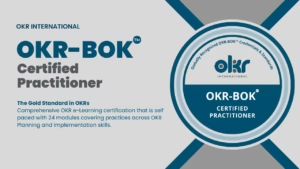
OKR-BOK™ Certified Practitioner: The #1 OKR E-Learning Certification
OKR-BOK™ Certified Practitioner: The #1 OKR E-Learning Certification for Strategy Professionals For professionals committed to mastering strategy execution, the OKR-BOK™ Certified Practitioner
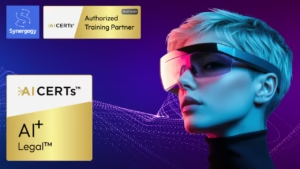
Best AI Legal Certification
Explore the Best AI Legal Certification to enhance your legal practice with artificial intelligence tools
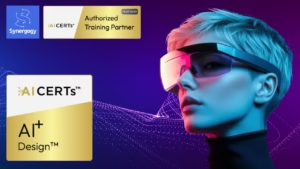
Best AI Certification for Designers
Explore the Best AI Certification for Designers to enhance your skills and stay relevant in
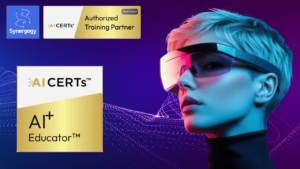
Best AI Certification for Educators
Explore the Best AI Certification for Educators and enhance your teaching skills to meet the
